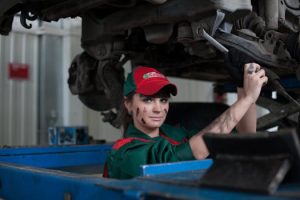Vertical Farm Safety Managers: Urban Ag Security
The rise of vertical farming has brought about many benefits, from increased urban agricultural production to reduced carbon emissions. However, with every new technology comes new challenges. Vertical farms have unique safety considerations that need to be addressed in order to ensure the well-being of workers and the security of the facility. This is where Vertical Farm Safety Managers (VFSM) come in. In this article, we will discuss the role of VFSMs in maintaining urban ag security and the safety measures that must be implemented in vertical farming facilities.
The Role of Vertical Farm Safety Managers
Vertical Farm Safety Managers play a crucial role in maintaining the overall safety and security of a vertical farming facility. They are responsible for developing and implementing safety programs, conducting risk assessments, and ensuring compliance with local, state, and federal regulations. VFSMs work closely with all staff members in the facility, from growers to maintenance workers, to ensure that safety protocols are being followed and all potential hazards are identified and addressed.
Understanding Urban Agriculture Security
Urban agriculture security refers to the protection of crops, facilities, and personnel from potential threats. These threats can include physical harm, theft, vandalism, and contamination. In vertical farming, one of the main security concerns is the protection of the high-value crops being grown. Due to the controlled environment of vertical farms, these crops are often more susceptible to damage and can result in significant financial loss. VFSMs are responsible for implementing security measures to prevent such occurrences.
Identifying and Mitigating Safety Hazards
The unique design and operations of vertical farms pose safety hazards that need to be carefully managed. For instance, with stacked systems comes the risk of falls and injuries. VFSMs conduct regular risk assessments to identify potential hazards and develop safety protocols to mitigate them. This may include implementing proper training for workers, installing safety equipment such as harnesses and guardrails, and conducting routine maintenance of equipment to ensure it is in good working condition.
Ensuring Compliance with Regulations
Vertical farms are subject to a range of regulations, including occupational safety and health standards and food safety regulations. VFSMs are responsible for ensuring that the facility is in compliance with all applicable regulations. This may include conducting regular safety inspections, keeping detailed records of safety protocols and incidents, and staying up-to-date with any changes in regulations.
Emergency Preparedness and Response
In the event of an emergency, VFSMs are responsible for developing and implementing emergency response plans. This may include procedures for natural disasters, power outages, and other unforeseen events. VFSMs should also conduct regular emergency drills to ensure that all staff members are aware of the procedures and can effectively respond in case of an emergency.
Conclusion
Vertical farming has the potential to revolutionize urban agriculture, but it also brings about new safety and security challenges. Vertical Farm Safety Managers play an essential role in addressing these challenges and ensuring the well-being of workers and the security of the facility. By implementing proper safety and security measures and staying in compliance with regulations, VFSMs help to create a safe and secure environment for workers and crops alike.








